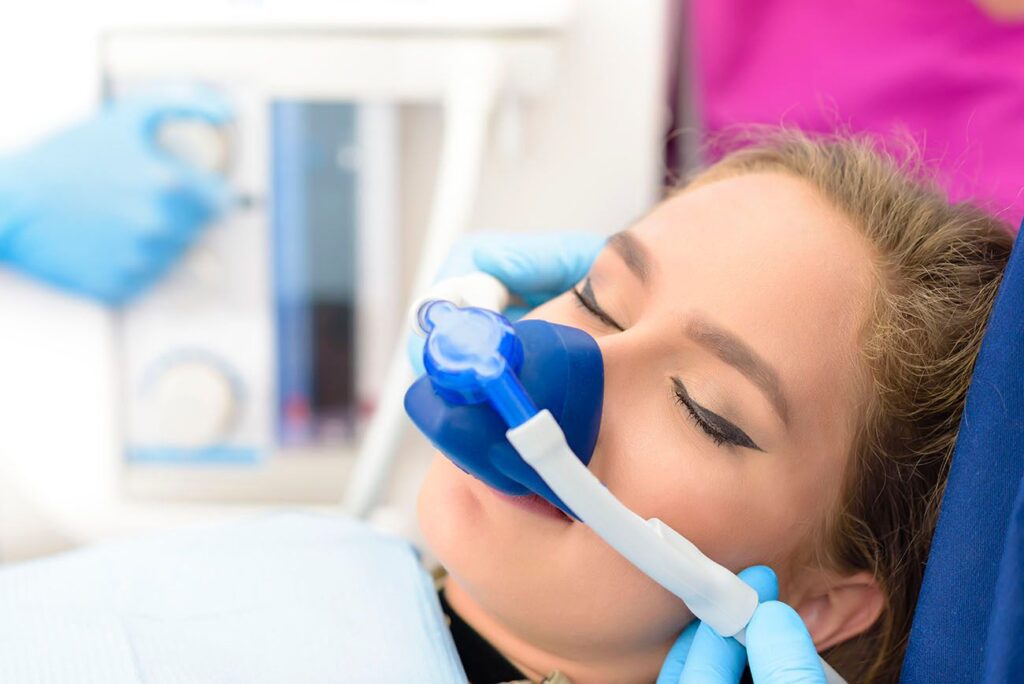About 20% of patients feel anxiety about undergoing dental work. Dental fear can affect people of all ages, but you can rest assured that your dentist will prioritize your comfort in their care. They can offer medication that helps you feel calm called dental sedation.
In many cases, dental anxiety stems from an anticipation of pain during a dental appointment. Your dentist offers anesthetics to address that concern, which differs from the benefits of dental sedation.
Talk to your dentist to determine if sedation dentistry will work for your oral health needs. Read on to learn more about the differences between anesthesia and dental sedation.

Local Anesthetic
A dentist wants to ensure you feel comfortable in the dental chair, so they provide medication that will prevent you from feeling pain or discomfort during dental work. Before starting a procedure, the dentist will use a local anesthetic delivered via an injection into a targeted nerve. This numbs the areas by blocking the nerve’s ability to send pain signals to the brain.
To make the experience more comfortable, they can also give you a topical anesthetic before the injection. This way, you will not feel anything as the dentist completes the necessary dental work.
It will not impact your consciousness at all. You can leave the office without issue after finishing your appointment, and the effects will wear off in a few hours. Dentists routinely and safely use local anesthetics in common treatments like dental fillings.
Sedation Dentistry
If you feel a fear of the dentist, you should talk to your dentist about dental sedation. They can prescribe you an oral tablet to take an hour before your appointment.
This will induce a calm, relaxed sensation so that you will not feel overwhelmed during your dental work. This can help you avoid stress and discomfort to enhance your experience at the dentist’s office.
In many cases, a patient may fall asleep during their dental procedure. The sensation will wear off on its own within a few hours, but you will still feel groggy after your appointment. For this reason, you should arrange a lift to and from the dentist’s office so that you do not operate a vehicle yourself.
General Anesthesia
General anesthesia refers to a type of medication administered intravenously that renders a patient unconscious during a dental procedure. Dentists reserve this treatment for patients with extreme levels of anxiety or those who require oral surgery like dental implants.
You will not remember or be aware of what happens while under anesthesia. Once the dentist stops providing the medicine, you will wake up. But you may feel disoriented, so you should plan for safe transport to and from the dentist’s office. You can expect to feel groggy for the rest of the day.
Let your dentist know about your concerns regarding your dental work and any lingering anxiety. They can discuss a treatment plan to ensure you feel at ease during your appointment. Dental sedation is a safe method to address a fear of the dentist. Learn more by calling your dentist today.
